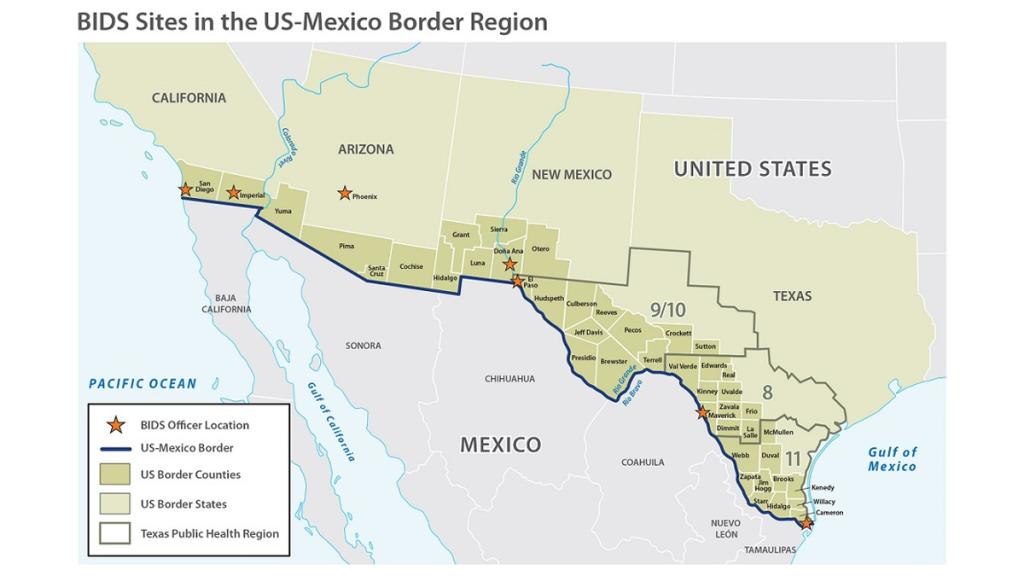Binational Border Infectious Disease Surveillance Program (BIDS)

Binational Border Infectious Disease Surveillance Program (BIDS)
The Binational Infectious Disease Surveillance (BIDS) program works with the U.S. states on the US-Mexico border and aims to enhance the detection, reporting, and prevention of infectious diseases along the U.S.-Mexico border. In California it is a collaborative between the California Department of Public Health and the U.S.-Mexico Border Health Commission, an organization focused on improving health and quality of life along the border. The Imperial County Public Health Department is subcontracted by the California Department of Public Health to implement Border Infectious Disease Surveillance (BIDS) projects that strengthen coordinated public health efforts along the U.S.–Mexico border.
BIDS program’s goals
Improve surveillance for infectious diseases of binational importance.
Develop strategies to control infectious diseases in the border region and advance health equity for populations experiencing disparities and
Strengthen implementation of the operational protocol for binational communication and coordination on disease notification and outbreaks for bilateral infectious disease preparedness and response.
Local Projects and Activities
BIDS projects and activities include systemic communication among partners and preparedness for infectious diseases outbreaks, and tailoring surveillance activities to local disease control activities.
Conducted year-round at ECRMC and PMHD to monitor respiratory pathogen trends and characterize viral strains circulating in our community.
Conducted at ECRMC to monitor circulating pathogens and understand antimicrobial resistance in our community.
Conducted in collaboration with the Mexicali Health Service Jurisdiction to increase identification of contacts across our borders and provide education on resources for tuberculosis infection assessment on both sides of the border.
